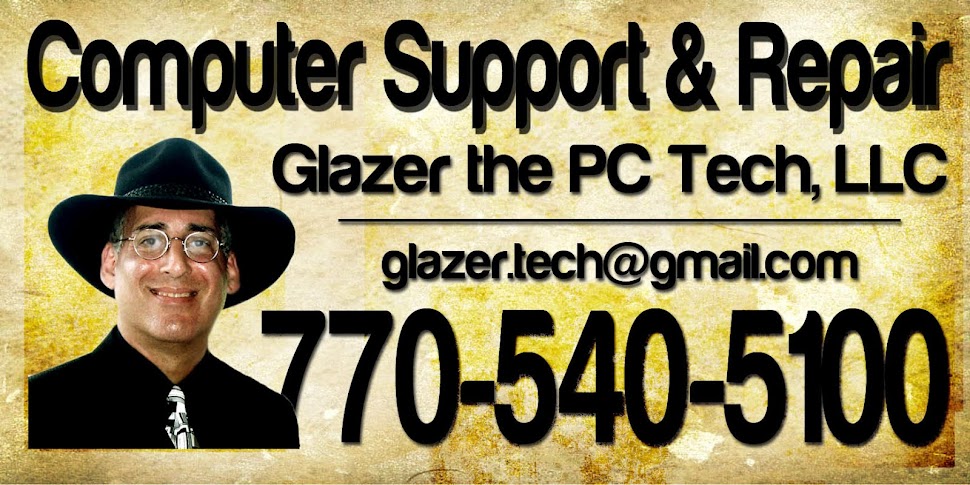|
With so many new types of computers to choose from lately, it's hard to know what to buy. More people seem to be purchasing the ubiquitous laptop, so let's take a look at them today.
It used to be just a laptop. Now there are Netbooks, ultra lights, UMPCs or ultra-mobile personal computers (they are the size of a Kindle-type device). There are rugged models, gaming models, tablets and desktop replacements. Then there is the mainstream laptop.
Within each of those categories come varying components. There is not a standard in any one of them. When you shop for a laptop, after you decide how much you want to spend and what type you want, that still leaves you with many decisions.
Should I get a 32- or 64-bit system? The latter is faster and will take advantage of more memory, but not all software will run under a 64-bit system yet. Many computers will ship with a disc allowing you the option to choose which you'd prefer.
There are also hard drives, RAM (memory) and the processor, clock speed and system cache to consider. The processor really defines the system. It's not just Intel versus AMD, either.
AMD has its Athlon, Sempron, Turion and Phenom (X2, X4, X6) processors, while Intel has the Pentium, the Atom, i3, i5 and i7 and Xeon models. Each has many configurations. Each is suited for different purposes.
If you just need a laptop for general computing, I wouldn't lose any sleep over not knowing the differences. As long as you have at least a gigabyte or two of RAM and a 300 GB or so hard drive, whatever processor comes with that would suffice.
If you are a gamer or work extensively with videos, I would drop a few more dollars and get a higher-end system. More memory helps, but a better processor will help more.
Most laptops now come with at least a dual-core processor. That is one physical processor working as two. It is faster than the old single-core type. There are now also quad cores and they can be faster and even more expensive.
At the low end, Netbooks generally use the Intel Atom processor. It is weak. There is a small 7-10 inch display with a keyboard not suitable for chubby fingers. The hard drive is small, there is little memory and there is no optical drive (CD/DVD drive). It's lightweight and may be great for students, but you get what you pay for.
In the mid-range or mainstream area, there is an abundant of devices to choose from. For $500, you can get a decent laptop, good enough to check your e-mail and go on Facebook, anyway.
For $700 to $900 you can get a really nice system. You will find the most choices in that range. It will come down to what features you are the most comfortable with.
Generally a benchmark of how good a computer is, is what's called the clock speed of the processor. In 1993, I had a Pentium with a clock speed of 33 MHz. That was a blazing 33 million cycles per second. In contrast, I now have a Turion with 2.3 GHz clock speed. That means it processes at 2.3 billion cycles per second. Some newer models have better than 3 GHz.
But with today's newer processors, there is more than just the clock speed. You need to look at the cores as well. There is also something called hyperthreading that allows the processor to actual multitask efficiently.
A dual core i5 may be faster than an Athlon dual core, but could cost lots more. Do you need the speed and the extra cost?
You can get a mediocre Netbook for $300 or a great desktop replacement for $1,800. Ask yourself a few questions prior to shopping. Determine what you will use the computer for before you get to the store and it won't be so overwhelming when you get there.
First and foremost set a budget. Know that you won't go above a certain amount. Then determine how it will be used. Next, how much power will you need? How light does it need to be? Will a 300 GB hard drive and 3 GB of RAM be enough? Look at the processor. Get a dual core.
Unless you store lots of music, video or photos, a 300-500 GB hard drive is plenty. Some systems now ship with a terabyte drive, which is 1,000 GB.
One gigabyte of RAM is minimal; two is better, but 3-4 GB is best.
As far as accessories, consider an external drive. With it, you can transfer data from one system to another.
Also if you find the glidepad uncomfortable, get a wireless USB mouse.
If you determine what you need the night before, you'll make a quicker and an informed decision once you're at the store.
Whether you end up with an Acer, Toshiba, Dell, Samsung or HP, once you get it home, you will be amazed how technology has grown since your last computer purchase.
Enjoy your 3 billion cycles of processing per second.
Arthur Glazer is a freelance writer and computer technician in Gainesville. His column appears biweekly. Arthur welcomes your computer questions and ideas for future columns.

